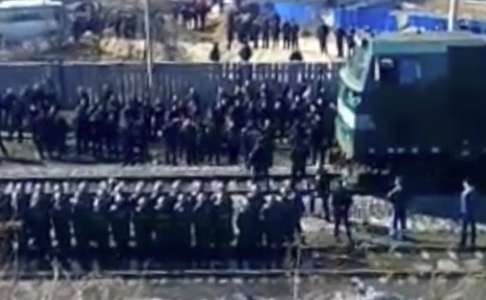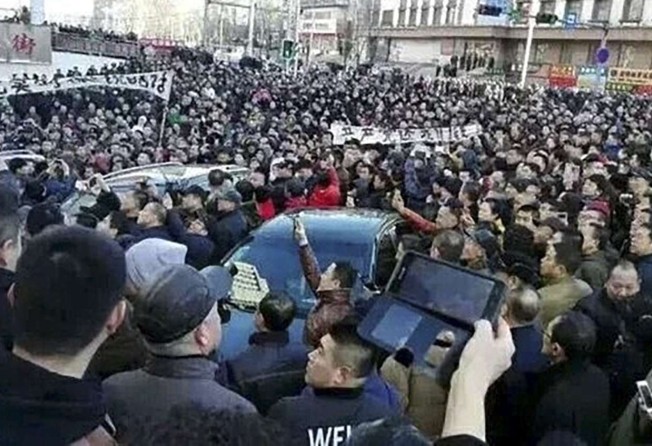
China must redouble efforts to ensure economic reforms do not lead to social instability
More protests such as those by miners in Heilongjiang are likely if leaders do not manage the shift to consumer-led growth well

Thousands of miners at a struggling state-owned coal firm and their families had genuine livelihood reasons for demonstrating over unpaid wages in the streets of Shuangyashan in northernmost Heilongjiang (黑龍江) province. But their action also conveyed a politically well-timed message to Beijing during the annual sessions of the National People’s Congress and the Chinese People’s Political Consultative Conference.
Just three months ago the nation’s leaders approved an economic blueprint that suggested that reform to tackle overcapacity in the state sector would be this year’s top priority. In his work report to the NPC, Premier Li Keqiang (李克強) mentioned the need to reform the bloated state-owned industrial sector, of which the local government-owned Shuangyashan mining firm is an example. It means shutting down so-called “zombie” firms and laying off millions of workers. The leadership announced last month that about 1.8 million workers in coal and steel alone would probably lose their jobs as it tackled industrial overcapacity. But with the world’s second-biggest economy trying to stabilise a slowdown, a renewed focus in the NPC proceedings on GDP targets suggests the message from the streets in Heilongjiang did no harm to the argument for growth over reform.

The Heilongjiang protests in part resulted from mismanagement, a sure source of more unrest in the future if officials cannot handle these issues properly. Widespread unrest could begin to affect social stability, the leadership’s biggest concern in a year leading up to a reshuffle at the top. The right way to handle protests like those in Heilongjiang is not the time-honoured approach of cracking down hard and gagging the media. In that respect the Heilongjiang case served as a good example, with provincial governor Lu Hao publicly admitting mismanagement and ordering payment of overdue salaries.